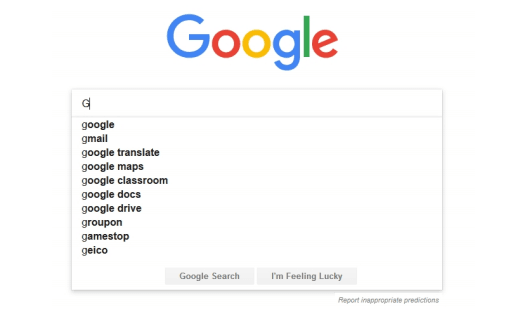A new report by the American Institute for Behavioral Research and Technology reveals that search engines like Google can shift voter opinions of undecided voters by up to 43 percent.
reveals that Google search manipulation can impact– and shift– nearly 80 percent of undecided voters. By inserting negative search suggestions under the name of a candidate, the results can be manipulated.
The lead author of the study, Dr. Robert Epstein, has extensively researched what he calls the Search Engine Manipulation Effect (SEME). His research reveals that the manipulation of results pages in search engines can shift the voting preferences of undecideds by huge margins: from 20 to 80 percent, depending on the demographic.
Dr. Epstein’s research found that when negative search terms were suggested it had a huge impact. He writes:
“The voting preferences of participants who saw no search suggestions shifted toward the favored candidate by 37.1%. The voting preferences of participants in the search suggestion groups who saw only positive search suggestions shifted similarly (35.6%). However, the voting preferences of participants who saw three positive search suggestions and one negative search suggestion barely shifted (1.8%); this occurred because the negative search suggestion attracted more than 40% of the clicks (negativity bias). In other words, a single negative search suggestion can impact opinions dramatically. Participants who were shown four negative suggestions (and no positives) shifted away from the candidate shown in the search bar (-43.4%).”
The study concludes that search engines manipulating search words can shift a “50/50 split split among people who are undecided on an issue to a 90/10 split without people’s awareness and without leaving a paper trail for authorities to follow.”
The conclusions are based on 16 months of analysis of 1,800 people who participated in a study from all 50 U.S. states. They intentionally had diverse ideological backgrounds; in order to provide a benchmark and control their biases, they were asked to judge political candidates with whom they were unfamiliar.
The study notes that during the 2016 Election, Google suppressed negative search suggestions for Hillary Clinton but allowed negative ones for Donald Trump and Bernie Sanders. (Who instructed Google to do that?)
The research also notes discrepancies when using Google search suggestions. It promotes itself, for example, when “G” is entered into the search bar. This is what comes up:
Google also prioritizes/favors certain brands in search results that are financially linked to Google. ie. “A” for Amazon, a top client using Google Adwords, the company’s digital advertising service. “T” for Target, Google’s third-biggest advertising client.
According to the research summary, “The same pattern occurs for other major advertisers on Google, among them Best Buy, Home Depot, Lowe’s, and Zillow.”
“The only companies that are shortchanged by this arrangement are those with names beginning with ‘g.’”
Advertisement
Advertisement


